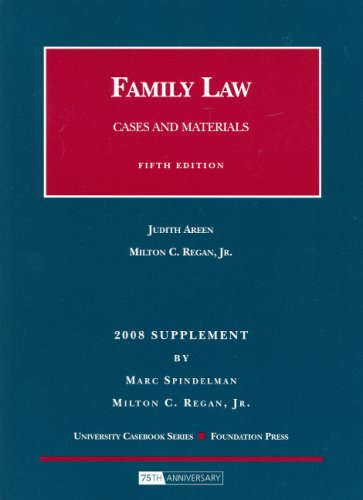Bill and Pat were married in State A on March 13, 1973, where they continue to live.
Question:
Bill and Pat were married in State A on March 13, 1973, where they continue to live. They have one child, Brenda, age fifteen. Since 1990, Bill and Pat have been having marital difficulties. Bill is a traveling salesman who spends a good deal of time away from State A. From 1991 to 1994, he did not see his family at all. He returned on February 4, 1995. He and Pat attended marital counseling sessions for about three months. By the summer of 1995, problems again arose. Bill left home. On the day he left, he said to Pat, “If you can straighten yourself out, I’ll consider coming back.” He packed all of his clothes and books but left behind the high school trophy he received for swimming. Although the departure was bitter, both sides agreed to maintain their joint checking account. Bill made deposits in the account. Pat wrote checks on the account to cover house expenses.
In September of 1995, Bill contacted a real estate broker in State B about renting an apartment for six months in that state. The broker suggested tax advantages of buying a condominium in State B as opposed to renting. Bill was persuaded.
He had been in State B only once or twice for his job, but wanted to explore the possibility of more extensive business opportunities there. On October 1, 1995, the broker called to inform Bill of a good condominium prospect in State B. On October 5, 1995, Bill was killed in an automobile accident on a highway in State B while on the way to examine the condominium for the first time.
State B wants Bill’s estate to pay a state inheritance tax on the theory that at the time of death, Bill was domiciled in State B. The representative of Bill’s estate disagrees and claims that Bill was domiciled in State A at the time of death.
In State B, the following statute exists, which is the basis of State B’s claim:
§ 14. Inheritance taxes are owed by persons who die domiciled in this state, which exists when the decedent had a physical presence in the state with the intent of making the state a permanent home.
Prepare an interoffice memorandum of law on the question of State B’s right to inheritance taxes. Do not do any legal research on the problem. Do the memo solely on the basis of the information provided above.
The office file number is 95-421. There is no court docket number, since no court action has yet been initiated. The Tax Department of State B has taken the position that inheritance taxes are due under § 14.
The law office where you work has been retained by the representative of Bill’s estate, who does not want to pay the inheritance tax to State B. Since the inheritance tax rate for State A is lower than for State B, it would be to the advantage of the estate to obtain a ruling that at the time of death, Bill was domiciled in State A.
For purposes of this assignment, you can assume the following definitions apply:
• Physical presence: actually being in a place
• Intent of making the state a permanent home: the desire to live in the state indefinitely;
the place to which one intends to return when away (a person can have only one permanent home)
Step by Step Answer:

Null Family Law Cases And Materials
ISBN: 9781599415741
5th Edition
Authors: Judith Areen , Milton C Regan





